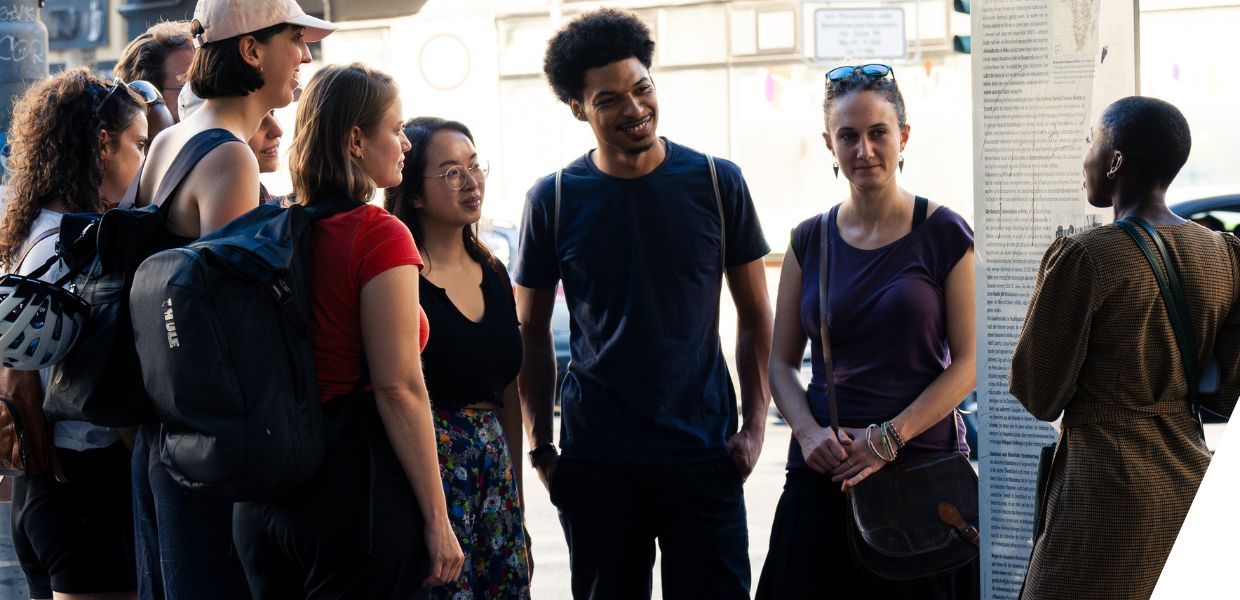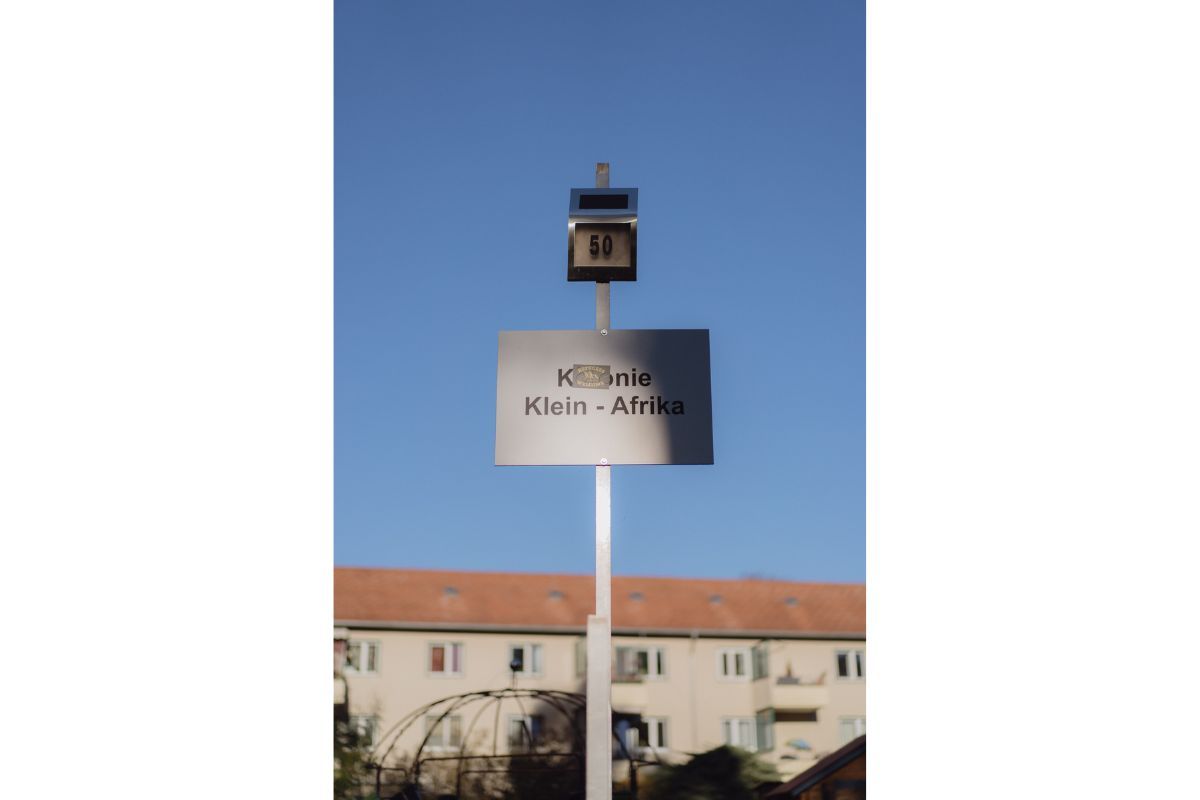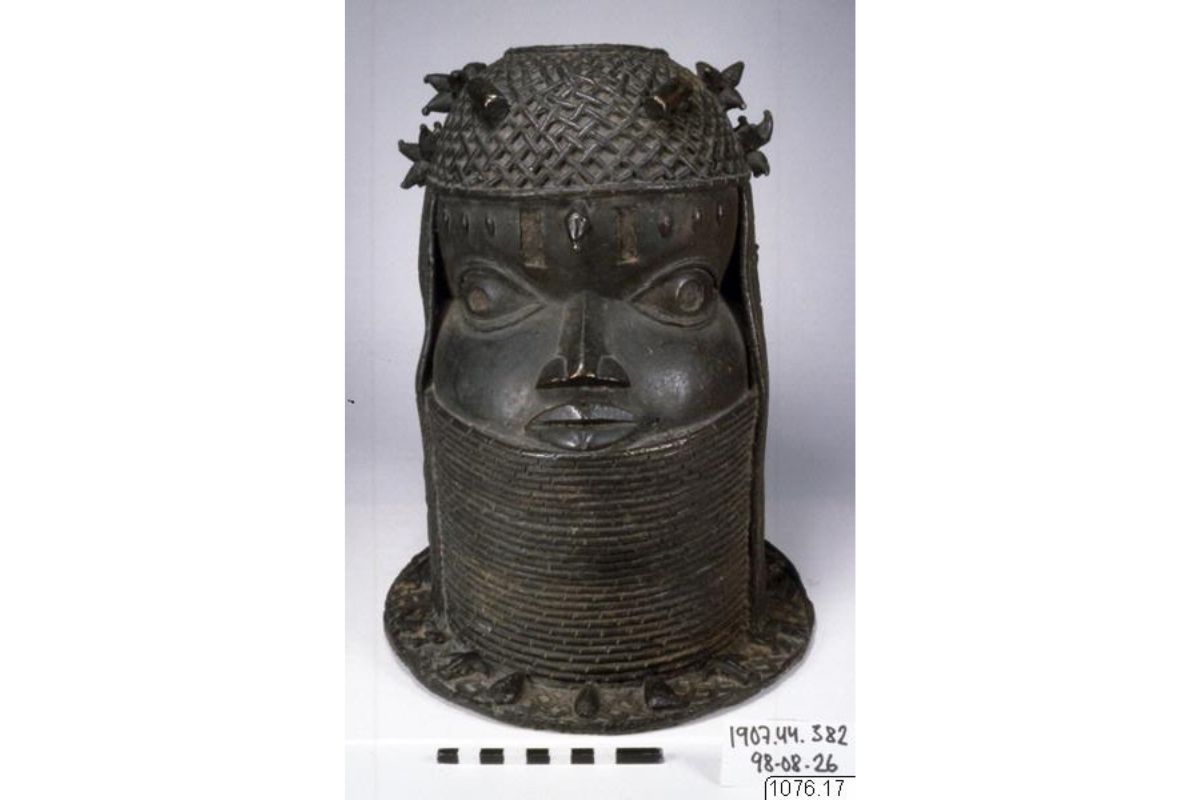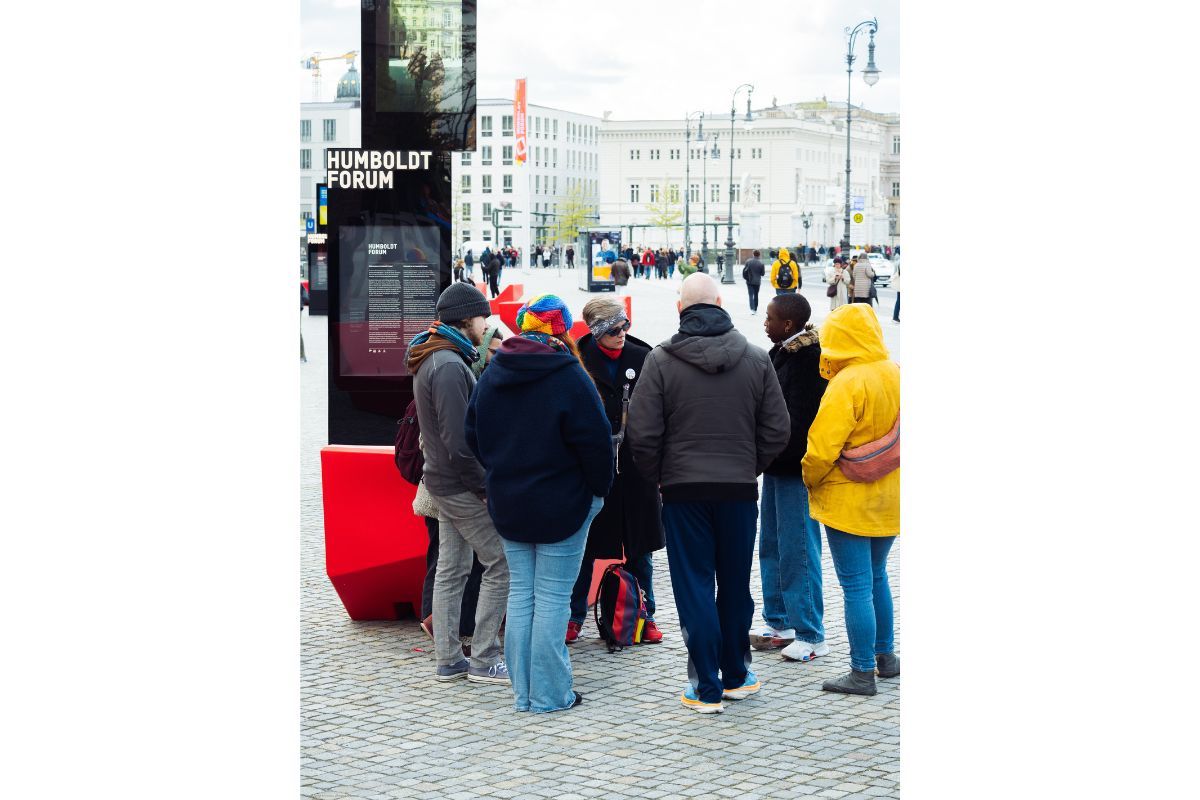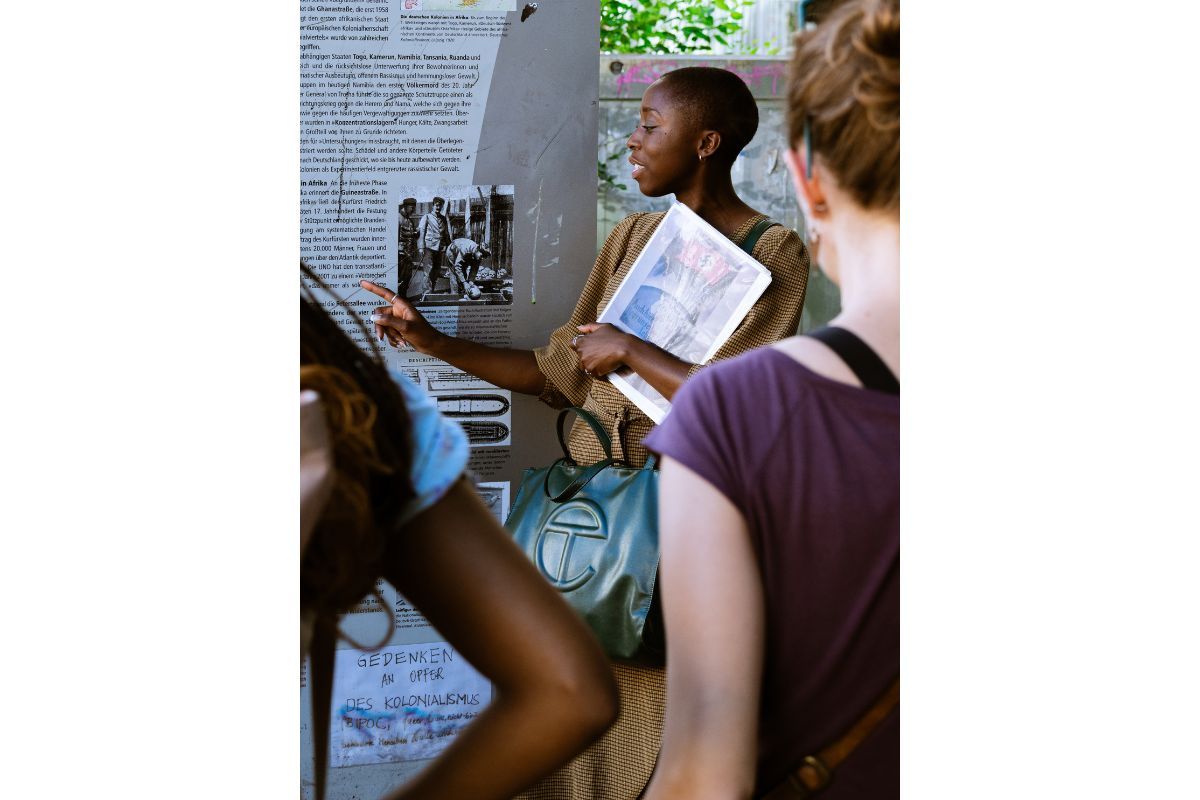Walk the past, change the future
Justice Mvemba set up deSta in 2021 to highlight how centuries of colonialism still affect the structures and systems that govern our lives today, having a lasting impact in areas like culture, politics and the economy. Justice believes that by shining a light on the history that led us to where we are today, we can bring about positive and lasting change for the future.
‘We don’t talk about Germany’s role in colonialism in schools,’ says Justice. ‘For example, you will find very few people who have heard of the 1884 Berlin Conference which saw European countries dividing the African continent into colonies. The fact that this happened in Berlin is widely unknown in Germany. I felt the tours would be a good way of spreading basic information and highlighting that colonialism isn’t over, the structures that were set in place 150-200 years ago are still structuring our lives today. I wanted to show that colonial narratives, biases and racist narratives are still part of our society and how we are socialised.’
What are the subjects of deSta’s decolonial tours?
deSta now runs three different walking tours in Berlin. The original leads groups around the city’s African quarter, where streets are named after former German colonies - Kamerunerstrasse, Togostrasse - and shares stories about courageous resistance fighters like Rudolph and Emily Manga Bell and Anna Mungunda.
